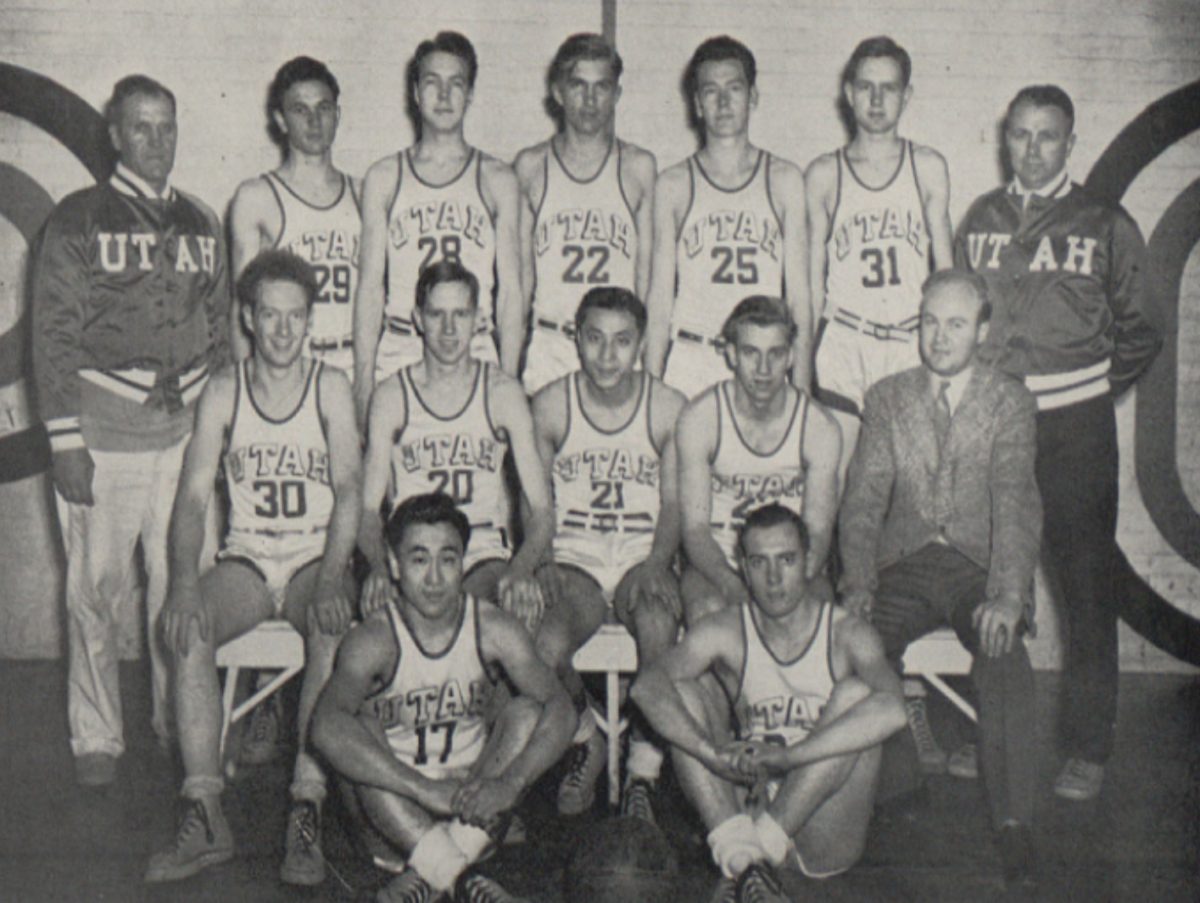What Could Conference Realignment Mean for the U?
University of Utah Football team celebrates after handily defeating the University of Oregon 38-10 to win the Pac-12 Championship title at Allegiant Stadium in Las Vegas, Nevada, on Dec. 3, 2021. (Photo by Jack Gambassi | The Daily Utah Chronicle)
November 8, 2022
In late June, USC and UCLA made the big announcement that they would be leaving the Pac-12 for the Big Ten, a move that will occur before the 2024 season. This is the second big conference move in the past two years, as last off-season Oklahoma and Texas announced that they would join the SEC in 2025.
USC and UCLA have been members of the Pac-12 since the early 20th century. Over the more than 90 years that they played in the Pac-12, they formed rivalries and established traditions that many people hoped would last for centuries. So, when the two schools announced they would be abandoning the conference that they shaped greatly this June, it left many people scratching their heads in confusion.
Many factors contributed to their departure, but the main reason behind their decision was they would generate more income by moving to the Big Ten. In 2007, the conference launched the Big Ten Network in partnership with Fox, a deal that over time has increased their viewership immensely. The Pac-12, however, decided to go its own way, as they created the Pac-12 Network in 2012 with no affiliations with bigger TV networks. Although it seemed like a good idea at the time, this move became detrimental for the Pac-12 as they were unable to gain as many viewers as other conferences and therefore made less money.
Now that four major college football programs have left their respective conferences, it is expected that many other schools will follow in their footsteps, with Utah being one of them. The Utes have been part of the Pac-12 since 2011, a marriage that has been a great help not only to the school’s athletic programs but to the school’s growth in general. However, now that USC and UCLA are leaving, is there any reason for Utah to stick around?
Although all college sports are considered when discussing a move to another conference, the main sport that is talked about in realignment is football, as it generates the most income. Utah football has been one of the most consistent programs in recent memory and a move to a bigger conference could lead to even bigger things.
As of right now in college football, there are five “power” conferences: the Pac-12, Big Ten, SEC, Big 12 and ACC. If Utah leaves the Pac-12, it is expected to join either the Big 12 or the Big Ten, however, many experts think that over the next couple of years, we could be heading to two or three super conferences. Right now each of the Power Five conferences has 10 to 14 teams in them, and the speculation is that two or three of these conferences will absorb the other two to make bigger conferences with about 20 teams each. The “super conference” proposal will cause several schools to be left behind in the merger. For Utah to have its best chance of being included in the merger, they must continue to win in football and develop their national brand.
National outlook and revenue is the most important aspect of a school being considered in conference realignment. Winning football games helps, but the ability to make money is what conferences are looking for. The way conferences like the Big Ten and the SEC are looking at realignment is by determining what these universities have to offer that they don’t already have.
For example, the Big Ten, a traditionally northern-based conference, was able to get the Los Angeles market, one of the biggest in the country, by adding USC and UCLA. They believe that by doing so they can expand their national brand. New additions such as Texas, which has one of the largest fan bases in the nation, and Oklahoma, who has had not only a lot of recent success but also is a natural rival to Texas, are very appealing for the SEC. The only way Utah can be included in realignment is to boast what they have to offer compared to other schools.
Although the future for Utah is uncertain and staying put in the Pac-12 might not be as permanent as we once thought, the growth of the program over the past several years has been noticed on a more national stage. No matter how the circumstances shape up, any move would be a big deal for Utah sports, as it shows how much the university has grown over the past decade.













